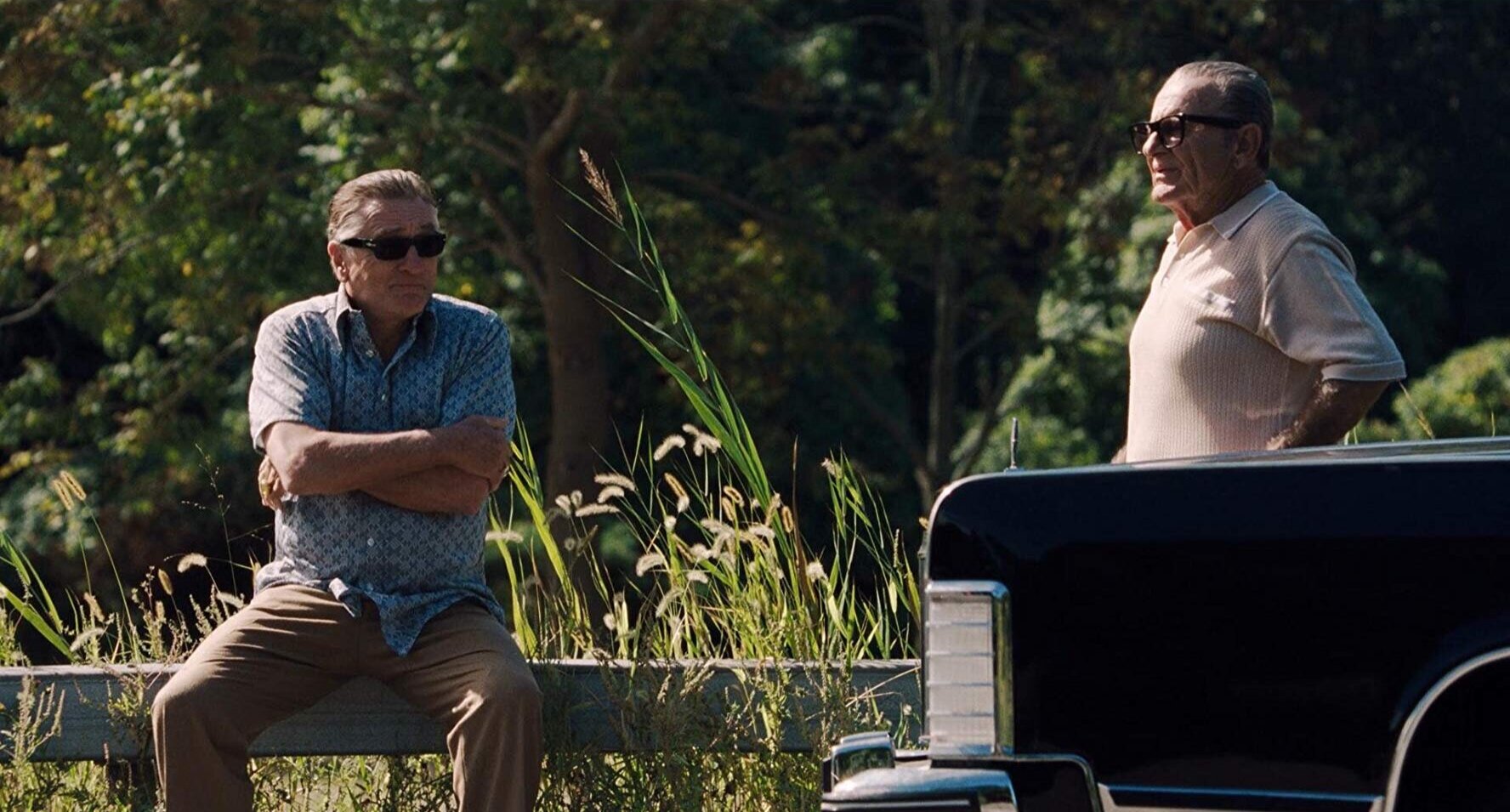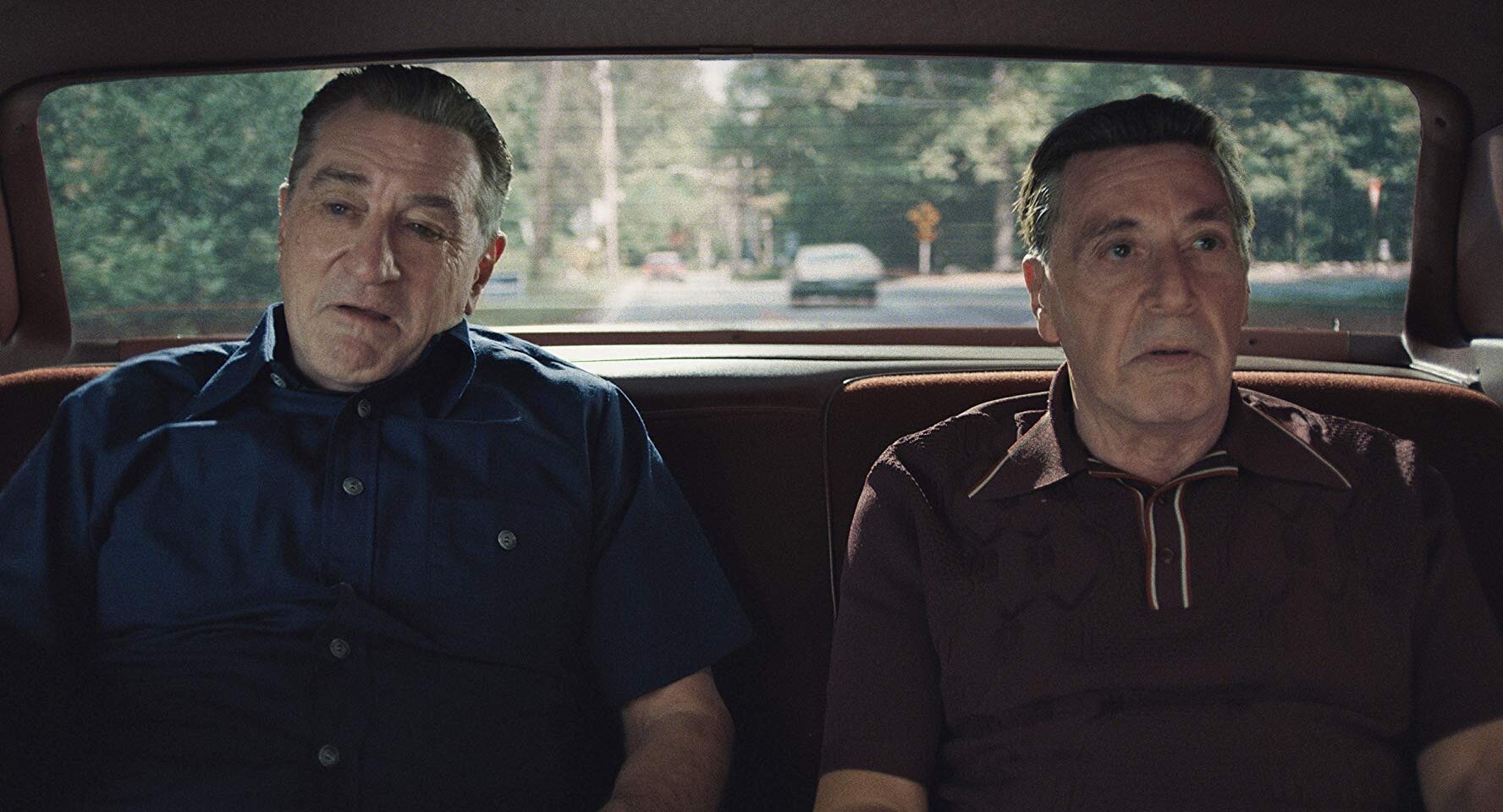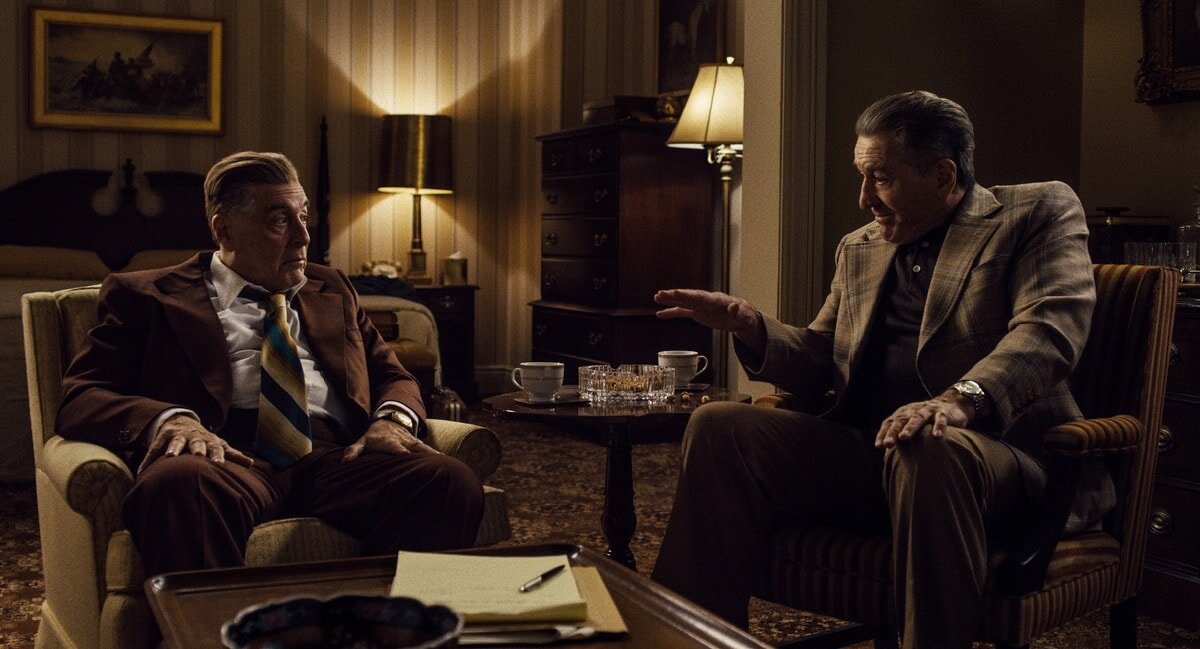Summary:
A mob hitman recounts his possible involvement with the killing of Jimmy Hoffa.
My Thoughts
With, “The Irishman”, Scorsese’s latest addition to his already impressive oeuvre, the man has not only once again proven that he is one of the best working directors in the business, but he’s also pushed the envelope in terms of technology, and he helped to bring out some of the best performances of the last twenty years from Hollywood greats Al Pacino and Joe Pesci. “The Irishman” is an undeniable masterpiece; a lengthy, emotional, and sometimes violent masterpiece.
“I Hear You Paint Houses.”
Frank Sheeran (Robert De Niro, “Taxi Driver”) learned to kill when he was serving in the army in Italy during WW2, and afterwards, while working as a truck driver and committing petty crimes on the side, Frank eventually came into contact with Russell Bufalino (Joe Pesci, “Goodfellas”), one of the heads of the Bufalino crime family. Russell offers Frank a job as his bodyguard and hitman, and Frank accepts. As the years go by, Russell and Frank become involved with Union President Jimmy Hoffa (Al Pacino, “Dick Tracy”). Frank and Jimmy become friends, but when Jimmy keeps running his mouth, it puts him into a bad situation.
Like “Goodfellas” and “Wolf”, “The Irishman” is set in a world run by criminals, a world that might be difficult for some viewers to understand the rules were it not for the writing and directing that slowly reveal the inner mechanizations of the mob. The film sort of eases us into this world, and in doing so it creates a realistic and rich place where every action has consequence, every character has purpose, and every motivation is defined. When Frank’s career with the mob starts, he begins as an outsider- as a truck driver- but very quickly he’s taken under Russell’s wing, and Russell begins to show him the ropes. As Frank begins to understand the reaches of mob and further understand their inner workings, he takes on more responsibility, and his role inside the mob grows, as well as his own attachment to it. I think one of the things I liked most about this film was the way that it showed one’s man’s journey over a long period of time, and how even the smallest actions he takes as a man or as a father have consequence in the long run.
Those consequences coming back to haunt Frank work themselves almost poetically into the story, and we as the viewer keep coming back to certain regrets like choruses in a song. Perhaps one of the best examples of this is when Frank attacks a shop owner who touched his daughter when she was a little girl, beating the shop owner to a pulp right in front of his daughter. The way this scene plays out is as disturbing as it is comical and it’s also incredibly insightful into Frank’s character; he believes the way to solve problems is with violence, and he has no qualms with using violence to his advantage, even right in front of his daughter. Later in Frank’s life, however, his daughter (now played by Anna Paquin), refuses to even speak with him because of the way he handles things. As Frank’s life goes on, he finds himself more and more isolated from the ones he loved, and those that he worked for- the mob that was his second family- all of them start to die off or get bumped off too. The story itself is huge (this is Scorsese’s longest feature to date, at three hours and twenty-nine minutes), and there are plenty of storylines that pop up and fade away for forty minutes at a time, only to arise later and become more important than ever; this film is as intricate as a great novel.
Another really impressive thing this film did was implement new de-aging technology. The whole of the film takes place over more than fifty years, the earliest part being when Frank was serving in the army in WW2, and the latest parts being set in early 2000s, just before Frank’s death. We talked a little bit on the TMM Podcast Episode on The Irishman about how the de-aging took a little bit of getting used to in some scenes, but I think all of us agreed that overall the effect was rather impressive. I mean just two years ago there was a ton of uproar over the uncanny valley effect of removing Henry Cavill’s mustache in “Justice League”, and now the technology looks good enough that three actors in their seventies can pull off looking like they’re in their mid-thirties.
De Niro gives a very solid performance as Sheeran, but it does feel very similar to what we’ve seen from him before. I think the more reflective stuff towards the end of the film is where De Niro really shines the most. See Joe Pesci back onscreen again was wonderful; his performance was amazing, and I really hope we see him snag a nomination this year. But perhaps the best performance of all was Al Pacino’s. I feel like Al has sort of gotten into a bad habit of starring in crappy movies lately, but this performance and his small role in “Once Upon a Time in Hollywood” earlier this year both gave me a lot of joy. Pacino simply killed it as Hoffa, and if he doesn’t get a nomination that will be a travesty.
Verdict:
“The Irishman” is nothing short of a masterpiece, and it’s certainly one of the best films of the year. As far as ranking this amongst Scorsese’s films, I’m honestly not sure where I’d put this one; I think it requires another watch. While it might not be as much fun or fast paced as some of Scorsese’s other films, I think “The Irishman” shows a filmmaker at the height of his powers, bringing forth hard-hitting truths in a way that is both compelling and thought-provoking.
Review Written By:








